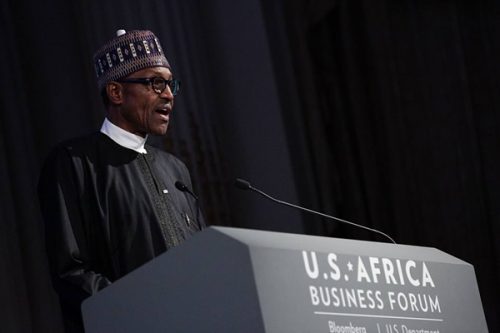The Debt Management Office (DMO) has advised the Federal Government not to borrow above 22.08 billion dollars in 2017.
DMO gave the recommendation on Tuesday in its 2016 Debt Sustainability Analysis (DSA) report, obtained by the News Agency of Nigeria (NAN) in Lagos.
In the report, DMO stated that the end-period on Net Present Value (NPV) of the Total Public Debt-to-GDP ratio for 2016 for the Federal Government was projected at 13.5 per cent.
”The maximum amount that can be borrowed (domestic and external) by the Federal Government of Nigeria in 2017, without violating the country-specific threshold, will be 22.08 billion dollars (i.e. 5.89 per cent of 374.95 billion dollars).
”The Debt Management Strategy, 2016-2019 provides for the rebalancing of the debt portfolio from its composition of 84:16 as at the end of December, 2015 to an optimal composition of 60:40 by the end of December, 2019 for domestic to external debts, respectively.”
It explained that the development supported the use of more external finance for funding capital projects,
noting that the policy was in line with the focus of the present administration on speeding up infrastructure development in the country.
The DMO stated that it would achieve this by substituting the relatively expensive domestic borrowing in favour of cheaper external financing.
”This policy stance has been reinforced by the recent deterioration in macroeconomic variables, particularly with respect to the rising cost of domestic borrowing.
”Hence, the shift of emphasis to external borrowing would help to reduce debt service burden in the short to medium-term and further create more borrowing space for the private sector in the domestic market.
”Accordingly, for the fiscal year 2017, the maximum amount that can be borrowed is 22.08billion U.S. dollars and it is proposed to be obtained from both the domestic and external sources as follows:
”New Domestic Borrowing 5.52billion U.S. dollars (equivalent of about N1.6billion) and New External Borrowing: 16.56billion U.S dollars (equivalent of about N4.8billion).”
The DMO also emphasised that the recommendation was made, taking into account the absorptive capacity of the domestic debt market and the options available in the external market.
Nigeria’s total debt portfolio rose 30 per cent to $62billion in 2014, up from $47.6billion as at September 2013.
The country’s external debt stood at $9.52billion, 15 per cent of the entire debt stock.
Domestic borrowing, however, accounted for bulk of the total money owed by Africa’s largest economy.
Prior to the 2005 debt relief, bad debt management practices led to the payment of $4.9billion yearly on debt servicing. (NAN)

